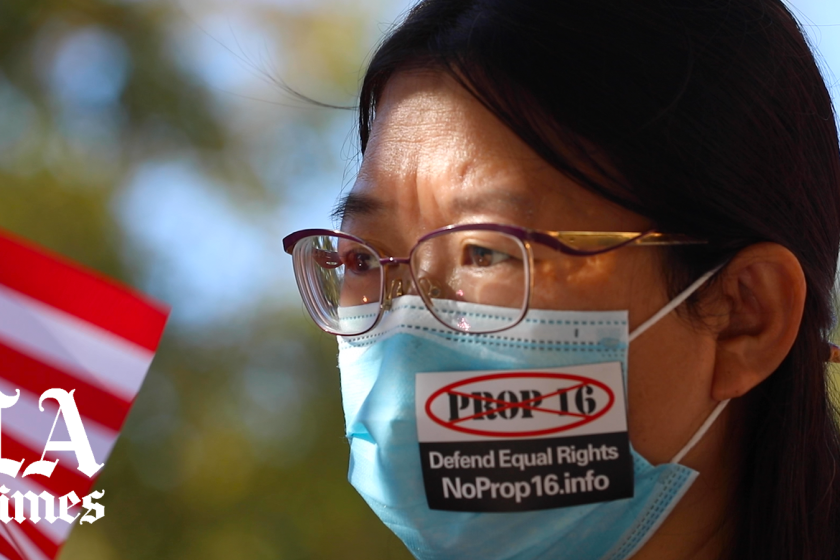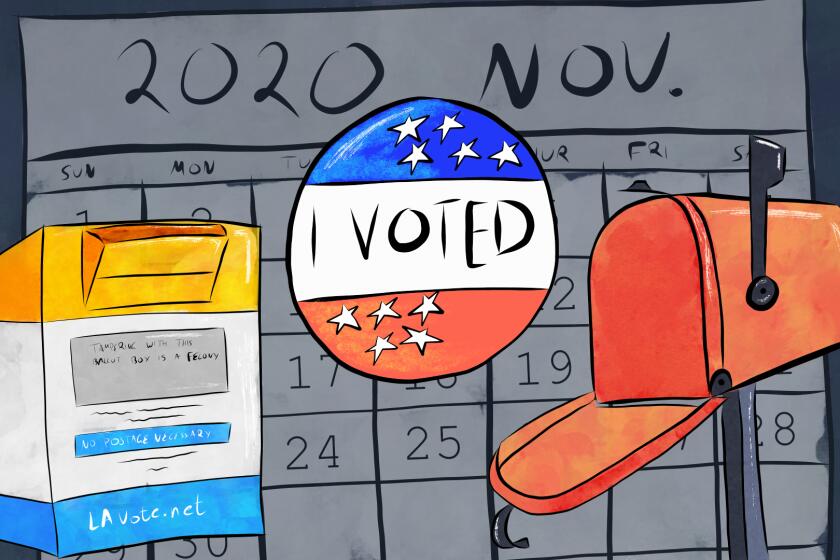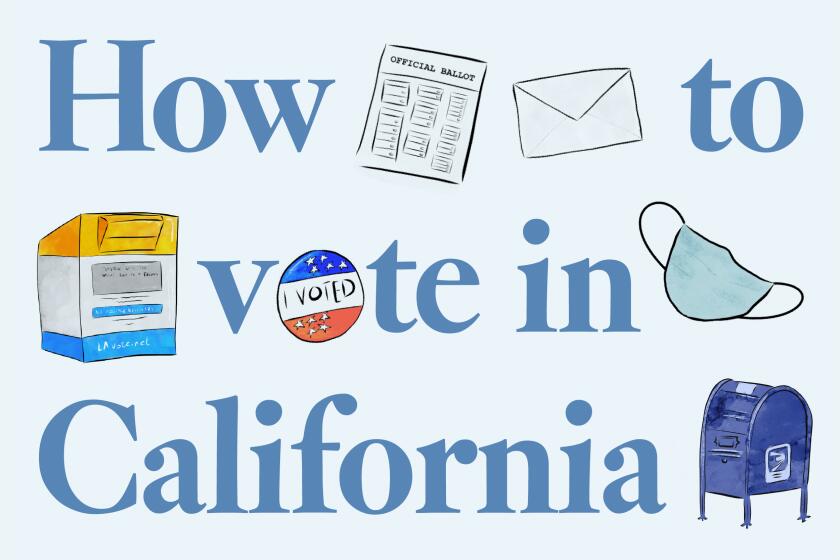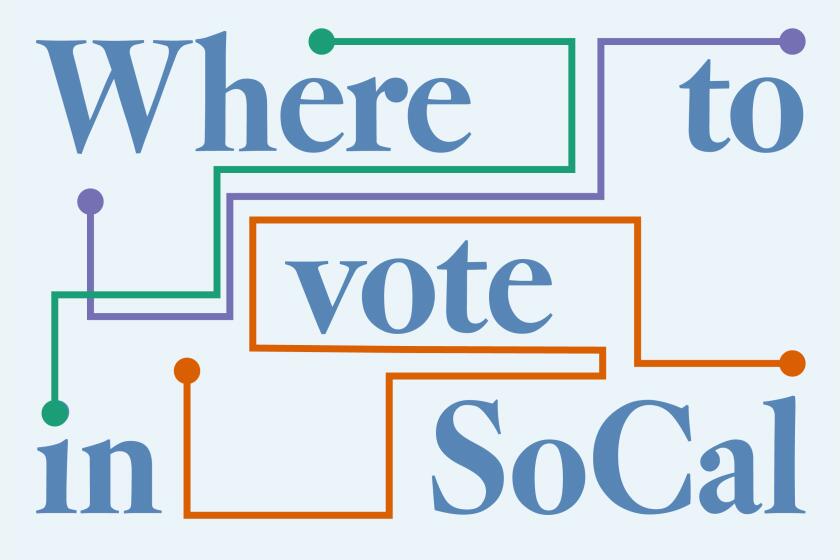Proposition 16 asks Californians to give affirmative action another try
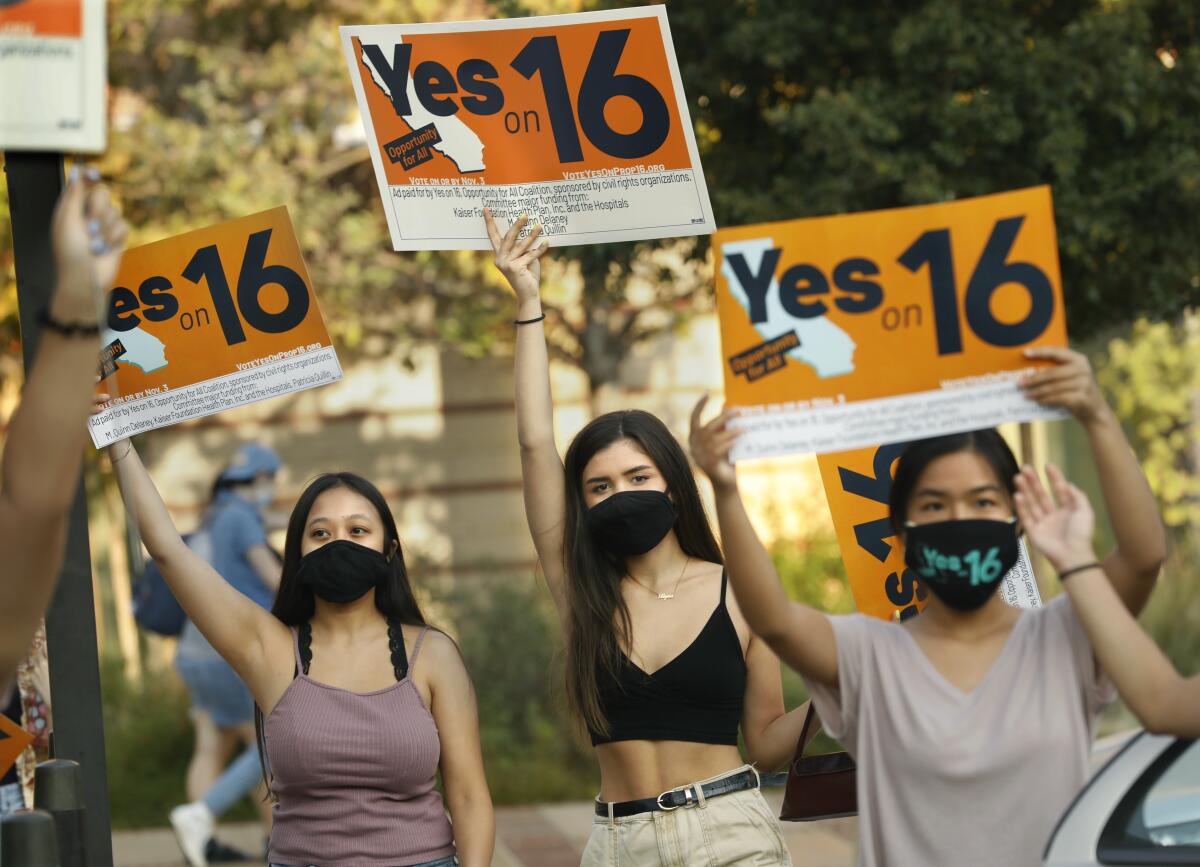
- Share via
SACRAMENTO — The end of affirmative action in California came almost a quarter-century ago, a time when people took to the streets in Los Angeles and San Francisco to protest racial inequality and as a presidential election stoked deep divisions in the state.
Now, Californians have the opportunity in the Nov. 3 election to decide whether to erase that decision, made by voters who supported Proposition 209 in 1996.
Proposition 16 would allow the reinstatement of affirmative action programs in California and repeal the decades-old ban on preferential treatment by public colleges and other government agencies based on race, ethnicity or sex.
Eva Paterson of the Equal Rights Society, an Oakland-based civil rights organization advocating for Proposition 16, said the real-world lessons of 2020 dispelled any notion that America is a colorblind society.
Black and Latino people have suffered the brunt of the devastation caused by the COVID-19 pandemic, including disproportionately high death rates, unemployment and financial ruin, Paterson said. And the nation witnessed the brutality of police violence against Black men and women, including the video-recorded killing of George Floyd while in the custody of Minneapolis police, and the police shooting death of Breonna Taylor in Louisville, Ky.
“White America can no longer say, ‘Oh, I don’t see color, we’re post-racial,’” Paterson said. “People of color are treated differently. One way that people can act on their desire to eliminate systemic racism is to vote for Proposition 16. It gives people of color, and women, more power, more money. If you have more money you have more access, more clout in the political system.”
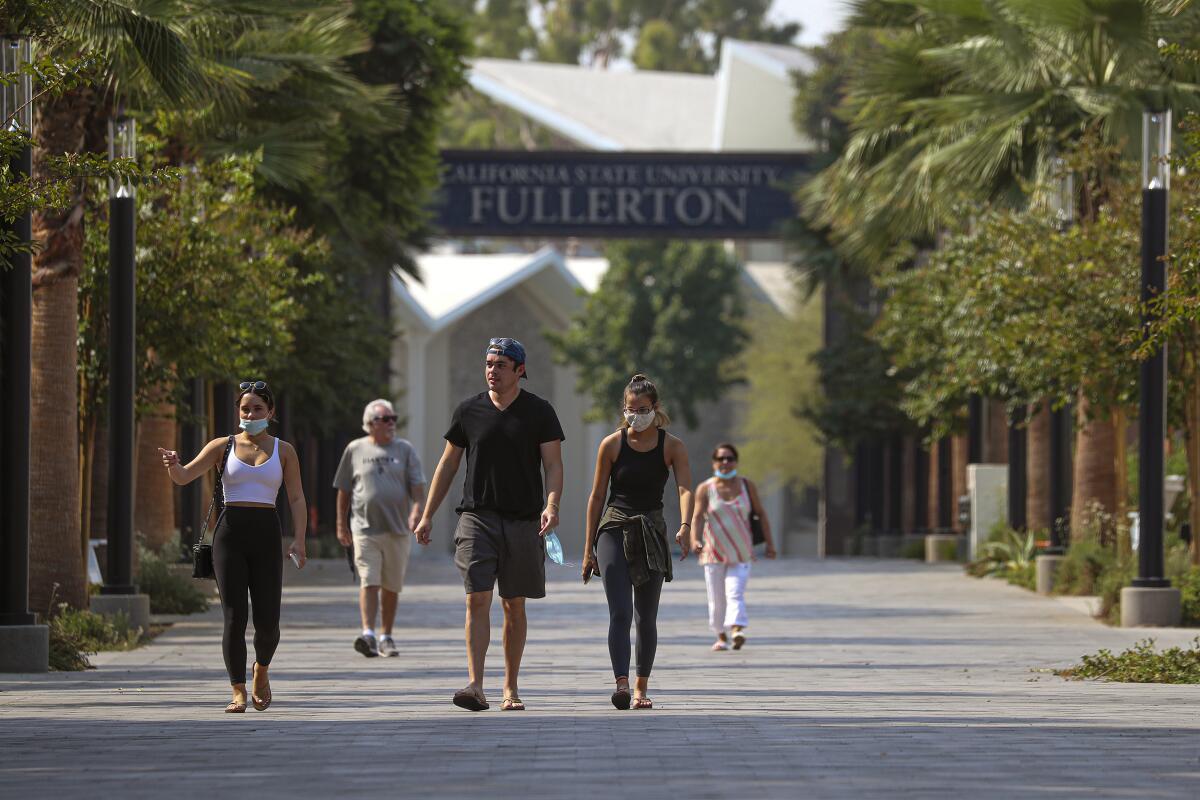
Under Proposition 16, public universities, including the University of California and California State systems, would be allowed to consider race, sex, color, ethnicity, or national origin to address diversity in admissions and other programs. Both state and local governments would be allowed to consider those same factors when hiring government employees and awarding government contracts.
The proposition, placed on the ballot by the Democrat-controlled California Legislature, would repeal Proposition 209, a highly controversial measure approved by voters in 1996.
Ward Connerly, a former UC regent who championed Proposition 209 and led efforts to end affirmative action across the country, said Proposition 16 runs counter to the notion that a person should be accepted by a university or hired by a public agency “on the basis of his or her individual merit.”
Connerly, who is Black, likened the preferences barred in the ballot measure to the favoritism received by the sons and daughters of Hollywood stars and other wealthy parents in the recent college admissions scandal.
“Neither race or ethnic preferences, or fat-cat preferences, are consistent with the public trust that we should have on the issue of fairness for every person,” Connerly said.
California voters approved Proposition 209 in an era steeped in division, a time that brought about the eventual declineof the Republican Party’s power in the state and the steady political ascension of Latino people.
From 1994 to 1998, Republican Gov. Pete Wilson, backed by party leaders, successfully championed Proposition 187 to strip government services from immigrants who entered the country illegally, Proposition 209 to end affirmative action and Proposition 227 to effectively ban bilingual education in public schools.
Latino people have since become the largest ethnic group in the state, and from 1996 to 2016, their share of the electorate more than doubled to an estimated 23%. Former Los Angeles Mayor Antonio Villaraigosa once said the “mean-spirited, cynical ploy” by Republicans to push Proposition 187 created a generation of Latino Democrats.
In 1996, Proposition 209 passed with 54% of the vote. An exit poll by the Los Angeles Times at the time found that Black, Latino and Asian voters all overwhelmingly opposed the measure, while white voters were strongly in favor.
As a result of Proposition 209, Paterson said businesses owned by women and people of color have lost out on billions of dollars’ worth of government contracts to larger, more established companies — firms with owners who tend to be white and male.
That has made it even more difficult for budding companies owned by Black, Latino and Asian American people and women to get off the ground, and instead helps “larger male-owned companies that with their high-price lobbyists have rigged the rules in their favor for decades,” Oakland Mayor Libby Schaaf said.
“I’ve seen firsthand how the state’s investment in women and minority-owned businesses can make or break long-term success,” Schaaf said. “Prop. 16 is the solution we need to help level the playing field.”
A UC Berkeley study released in August found that California’s ban on affirmative action significantly harmed Black and Latino students by reducing their enrollment at UC campuses as well as lowering their graduation rates and driving down wages when they entered the workforce.
Richard Sander, a UCLA economist and law professor who opposes Proposition 16, challenged the findings in the Berkeley study. A self-described liberal Democrat, Sander claimed that his studies show Proposition 209 drove UC to help boost the academic preparation of students of color, which he said helped increase college graduation rates that exceeded those when affirmative action programs were in place.
Tom Campbell, a former Republican congressman from the Bay Area who supported Proposition 209 in 1996, said that if the ballot measure is repealed, California’s universities will have the power to pick winners and losers.
“Is it right for the state of California to tell students, you’re not going to be admitted because of your race, if your race were different, you would be admitted?” said Campbell, now a law professor at Chapman University’s Fowler School of Law.
Campbell said that when he served as dean of Berkeley’s business school following the passage of Proposition 209, the program was very successful at recruiting students from underrepresented backgrounds into its masters program. The school did consider an applicant’s income, whether they were the first in the family to go to college and where they went to high school, he said.
Campbell said that he agrees that the “legacy of slavery and Jim Crow have not disappeared” and inequality continues to exist. But he doesn’t believe that reinstating affirmative action programs is the most effective way to address the problem.
Two recent polls show Proposition 16 faces strong opposition and tepid support. A Public Policy Institute of California poll released in mid-September found that just 31% of likely California voters surveyed said they would vote for the proposal, while 47% said they oppose it. A poll by UC Berkeley’s Institute of Governmental Studies had similar overall findings that same month.
“I think there are still a lot of people who don’t understand what affirmative action is. They’re still hung up on quotas and set-asides,” said Matthew Mendez Garcia, a political scientist at Cal State Long Beach. “It was a huge issue in the 1990s and it just dropped off the radar.”
Mendez Garcia believes that once California voters are informed about the measure and how it could deliver equality of opportunity, support will grow.
Billions of dollars are at stake as California voters decide whether to overturn a ban on affirmative action for government contracting.
Proponents of Proposition 16 have raised roughly $15 million and launched a statewide advertising campaign in English and Spanish. Major donors include Northern California attorney Quinn Delaney, chair of Akonadi Foundation, which advocates for social change; as well as the Kaiser Foundation, California Teachers Assn., and Los Angeles Clippers owner and former Microsoft Chief Executive Officer Steve Ballmer. Supporters have outraised groups opposing the measure by more than 12 to 1.
Proposition 16 has also been endorsed by all of California’s top Democratic political leaders, including Gov. Gavin Newsom, Sens. Dianne Feinstein and Kamala Harris and Los Angeles Mayor Eric Garcetti. The UC Board of Regents supported the measure, as did the Cal State University Board of Trustees and the California Community College Board of Governors.
Opponents include the California Republican Party, Orange County Board of Supervisors Chairwoman and congressional candidate Michelle Steel and the Chinese American Civic Action Alliance.
Thomas Saenz, president of the Mexican American Legal Defense and Educational Fund, said that one of the biggest concerns raised in the past about affirmative action, mandating quotas, should be a nonissue since the practice is banned under federal law and U.S. Supreme Court rulings.
Still, federal law permits the government to consider race in limited circumstances as one of several factors when it comes to university admissions, public contracts and hiring teachers, police officers and other government workers. Because that is outlawed in California, agencies in this state in the past have been afraid to even compile data on disparities for fear of running afoul of Proposition 209 and being sued, though that has been changing in recent years, he said.
“Nobody does the kind of deep analysis on racial and gender disparity that you would go through in order to consider a race-conscious or gender-conscious affirmative action program,” Saenz said. “No elected policymaker wants to highlight an issue like racial disparities when they’re not going to be able to take aggressive steps to fix it.”
Times staff writer Teresa Watanabe contributed to this report.
More to Read
Sign up for Essential California
The most important California stories and recommendations in your inbox every morning.
You may occasionally receive promotional content from the Los Angeles Times.
